Addictions
British Columbia Supreme Court rules province’s constitution protects hard drug use on playgrounds
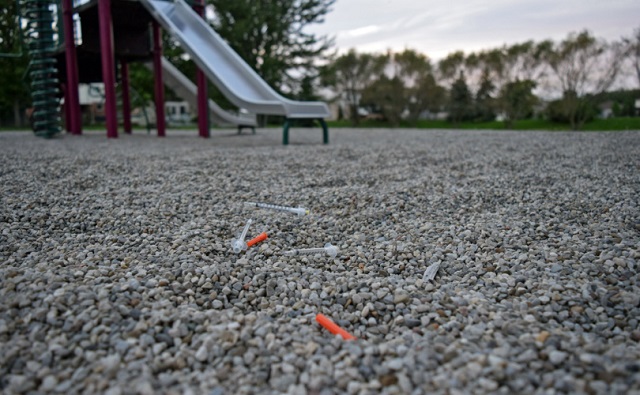
From LifeSiteNews
Hinkson even admitted that playgrounds would be exposed to having bio-hazardous drug paraphernalia but claimed that these issues take a back seat to the province’s drug overdose problems.
In light of the federal government relaxed stance on hard drug use in British Columbia, the province’s Supreme Court ruled that preventing drug users from going near playgrounds would violate their constitutional right and cause “irreparable harm.”
The NDP provincial government was considering amendments to a federal government hard drug use allowance pilot that allowed hard drugs to be consumed in small quantities by banning hard drug use near areas where kids gather, such as playgrounds.
NDP British Columbia Premier David Eby had said of his government’s amendment in May 2023 that “nobody wants this activity affecting our kids, and we will do something.”
Many municipalities had complained that parks and playgrounds should be off-limits to drug users and stay protected, per the Controlled Drugs and Substances Act.
The government’s amendment was encoded after a bill was passed last November that directed police to ensure illegal drugs in playgrounds were not allowed, and those doing so should be told to leave or face arrest if they did not comply.
The province’s playground amendment was put in place on September 18, 2023, which in effect barred hard drug use near playgrounds. It should be noted that the original decriminalization law included an exception banning drug use near “childcare facility premises.”
However, the province’s Supreme Court responded with an injunction that struck down this amendment in December 2023. The court’s injunction to the province’s law, which banned hard drug use near playgrounds, ruled that this amendment was a violation of the Charter of Rights and Freedoms.
According to provincial Supreme Court Chief Justice Christopher Hinkson, banning hard drug use in areas where kids congregate would cause “harm” to drug users.
Hinkson even admitted that playgrounds would be exposed to having bio-hazardous drug paraphernalia but claimed that these issues take a back seat to the province’s drug overdose problems.
“I … accept that the attendant public safety risks are particularly concerning given that many of the restricted areas and places in the Act are frequented by seniors, people with disabilities, and families with young children,” Hinkson wrote in his ruling.
Ruling ‘outrageous,’ says Conservative MP
Conservative MP Kerry-Lynne Findlay for South Surrey-White Rock, British Columbia, blasted the court’s ruling.
“Crime, chaos, drugs and disorder. An outrageous decision by the BC Supreme Court that only advances Trudeau’s radical agenda and puts our children at risk,” Findlay posted December 30 on X (formerly Twitter).
“Instead of normalizing open drug use, Conservatives will bring home safe communities & ensure our loved ones suffering from addiction are treated with compassion and on a path to recovery.”
The court injunction stemmed from the Harm Reduction Nurses Association arguing in court that restricting hard drug use near playgrounds would result in “lone drug use” that would lead to more overdoses.
“It is apparent that public consumption and consuming drugs in the company of others is oftentimes the safest, healthiest, and/or only available option for an individual,” Hinkson ruled.
Provincial government lawyers argued in court that the Harm Reduction Nurses Association was trying to use “anecdotal evidence, unsubstantiated conclusory statements” by claiming its amendment would cause harm.
Hinkson disagreed. “Given the evidence before me, I find that there is a high degree of probability that at least some of the harm set out by the plaintiff will in fact occur,” he said.
He also said the provincial amendment would violate one’s “right to life, liberty and security of the person” guaranteed by section 7 of the Charter of Rights and Freedoms.
“I am satisfied that the suspension of the Act … can be properly characterized as a substantial public benefit,” he ruled.
His injunction will stay in place until March 31, 2024.
Deaths from drug overdoses in Canada have gone through the roof, notably after the Trudeau government relaxed the nation’s hard drug rules in British Columbia on a trial basis.
Trudeau’s federal policy put in place in May 2022 in effect decriminalized hard drugs, including heroin, cocaine, fentanyl, meth and MDMA on a trial-run basis in British Columbia. While the policy was approved in 2022, it did not come into effect until February 2023.
Under the policy, the federal government began allowing people within the province to possess up to 2.5 grams of hard drugs without criminal penalty, but selling drugs remained a crime.
The policy has been widely criticized, especially after it was found that the province broke three different drug-related overdose records in the first month the new law was in effect.
Despite the policy, deaths from drug overdoses in Canada continue to skyrocket. The most recent statistics from 2021 show that they went up 33%.
Addictions
City of Toronto asks Trudeau gov’t to decriminalize hard drugs despite policy’s failure in BC
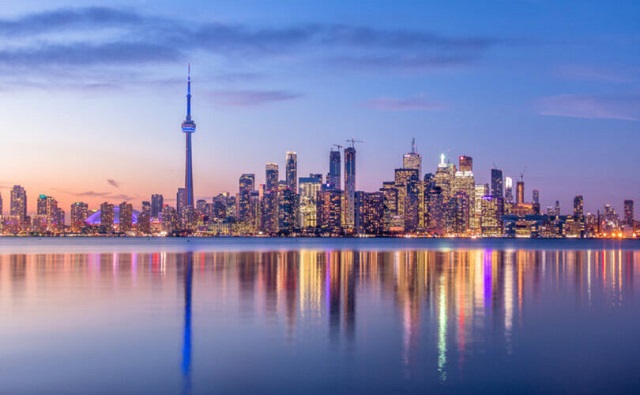
From LifeSiteNews
“Criminalizing the possession of drugs for personal use leads to discrimination and stigma, and contributes to people hiding their drug use from their physicians, friends, family, colleagues, and community”
The City of Toronto is asking Prime Minister Justin Trudeau’s government to decriminalize hard drugs.
In a March letter, Toronto city officials appealed to the Trudeau government to legalize all quantities of crack, cocaine, heroin, meth, and other hard drugs, despite warnings that it will bring increased chaos and violence to the city. Its reasoning is that people look askance at drug abuse and drug abusers, who then attempt to hide their habit.
“The evidence demonstrates that criminalizing the possession of drugs for personal use leads to discrimination and stigma, and contributes to people hiding their drug use from their physicians, friends, family, colleagues, and community,” the document claimed.
The letter, penned by Medical Officer of Health Dr. Eileen de Villa, City Manager Paul Johnson, and Chief of Police Myron Demkiw requested that the Trudeau government decriminalize hard drugs for young people as well as adults. The application places no limit on the quantity of drugs which would be legally obtained.
Toronto is already seeing a rise in crime since the election of Toronto mayor Olivia Chow. Canadians have pointed out that Toronto is dealing with several issues, without adding the decriminalization of hard drugs,
“Trudeau must reject Toronto’s application to allow public use of crack, cocaine, heroin, & other hard drugs,” Conservative Party leader Pierre Poilievre wrote on X, formerly known as Twitter.
“His dangerous policy cannot bring the same chaos, death & destruction to more Canadian cities,” he added.
Trudeau must reject Toronto's application to allow public use of crack, cocaine, heroin, & other hard drugs.
His dangerous policy cannot bring the same chaos, death & destruction to more Canadian cities. pic.twitter.com/hG5h9lsWPq
— Pierre Poilievre (@PierrePoilievre) May 1, 2024
Poilievre’s condemnation was echoed by Ontario Premier Doug Ford who promised, “I will fight this tooth and nail. This is the wrong way to go.”
Poilievre further explained that Canadians have already seen the dystopian effects of the decriminalization of hard drugs in British Columbia, which “has caused chaos in hospitals, playgrounds, parks, and public transport.”
READ: British Columbia should allow addicts to possess even more drugs, federal report suggests
Beginning in early 2023, Trudeau’s federal policy, in effect, decriminalized hard drugs on a trial-run basis in British Columbia.
Under the policy, the federal government began allowing people within the province to possess up to 2.5 grams of hard drugs without criminal penalty, but selling drugs remained a crime.
The province’s drug policy has been widely criticized, especially after it was found that the province broke three different drug-related overdose records in the first month the new law was in effect.
Last week, BC Premier David Eby finally admitted that the province’s ‘safe supply’ program was a failure and called on the Trudeau government to reverse the program. However, Trudeau has yet to respond to the province’s appeal for help.
“Safe supply“ is the term used to refer to government-prescribed drugs that are given to addicts under the assumption that a more controlled batch of narcotics reduces the risk of overdose. Critics of the policy argue that giving addicts drugs only enables their behavior, puts the public at risk, and disincentivizes recovery from addiction. Where “safe supply” has been implemented, it has not reduced the number of overdose deaths. It has sometimes even increased it.
The effects of decriminalizing hard drugs in parts of Canada have been exposed in Aaron Gunn’s recent documentary Canada is Dying, and in the British Telegraph journalist Steven Edginton’s mini-documentary, Canada’s Woke Nightmare: A Warning to the West.
Gunn says he documents the “general societal chaos and explosion of drug use in every major Canadian city.”
“Overdose deaths are up 1,000 percent in the last 10 years,” he said in his film, adding that “[e]very day in Vancouver four people are randomly attacked.”
Even Liberals have begun admitting that Trudeau’s drug program has not helped addicts but only added to their problems.
In April, Liberal MP Dr. Marcus Powlowski testified that violence from drug users has become a problem in Ottawa, especially in areas near the so-called “safe supply” centres which operate within blocks of Parliament Hill.
“A few months ago I was downtown in a bar here in Ottawa, not that I do that very often, but a couple of colleagues I met up with, one was assaulted as he was going to the bar, [and] another one was threatened,” said Powlowski.
“Within a month of that, I was returning down Wellington Street from downtown, the Rideau Centre, and my son who is 15 was coming after me,” he continued. “It was nighttime, and there was someone out in the middle of the street, yelling and screaming, accosting cars.”
RELATED: Liberal MP blasts Trudeau-backed ‘safe supply’ drug programs, linking them to ‘chaos’ in cities
Addictions
British Columbia to re-criminalize hard drug use in public after massive policy failure
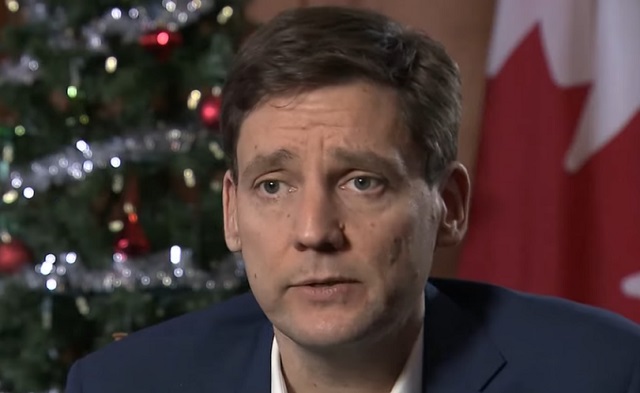
From LifeSiteNews
British Columbia premier David Eby announced that his province plans to re-criminalize hard drug use in public spaces after its decriminalization last year led to widespread social disorder.
British Columbia is asking the Trudeau government to roll back its drug decriminalization program after increased violence and continued overdoses.
On April 26, New Democratic Party (NDP) premier of British Columbia David Eby announced that he is working with Prime Minster Justin Trudeau’s federal government to re-criminalize drug use in public spaces, including inside hospitals, on transit, and in parks. British Columbia, under permission from the Trudeau government, had decriminalized such behavior in 2023.
“Keeping people safe is our highest priority,” Eby explained in a press release. “While we are caring and compassionate for those struggling with addiction, we do not accept street disorder that makes communities feel unsafe.”
“We’re taking action to make sure police have the tools they need to ensure safe and comfortable communities for everyone as we expand treatment options so people can stay alive and get better,” he continued.
Under the new regulations, police would be given the power to prevent drug use in all public places, including hospitals, restaurants, transit, parks and beaches.
However, drug use would remain legal at “a private residence or place where someone is legally sheltering, or at overdose prevention sites and drug checking locations.”
Eby’s concerns over drug use were echoed by Minister of Public Safety and Solicitor General Mike Farnworth who said, “Our communities are facing big challenges. People are dying from deadly street drugs, and we see the issues with public use and disorder on our streets.”
“As we continue to go after the gangs and organized criminals who are making and trafficking toxic drugs, we’re taking action now to make it illegal to use drugs in public spaces, and to expand access to treatment to help people who need it most,” he promised.
Beginning in early 2023, Trudeau’s federal policy, in effect, decriminalized hard drugs on a trial-run basis in British Columbia.
Under the policy, the federal government began allowing people within the province to possess up to 2.5 grams of hard drugs without criminal penalty, but selling drugs remained a crime.
While British Columbia has not yet indicated it plans to re-criminalize possession, its decision to clamp down on public drug use presents a major departure from its previous tactics of continually liberalizing its attitude toward narcotic use.
Since being implemented, the province’s drug policy has been widely criticized, especially after it was found that the province broke three different drug-related overdose records in the first month the new law was in effect.
The effects of decriminalizing hard drugs in various parts of Canada has been exposed in Aaron Gunn’s recent documentary, Canada is Dying, and in U.K. Telegraph journalist Steven Edginton’s mini-documentary, Canada’s Woke Nightmare: A Warning to the West.
Gunn says he documents the “general societal chaos and explosion of drug use in every major Canadian city.”
“Overdose deaths are up 1,000 percent in the last 10 years,” he said in his film, adding that “[e]very day in Vancouver four people are randomly attacked.”
-
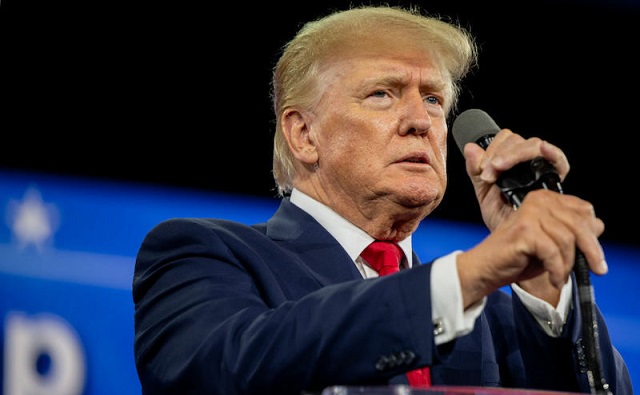
 International20 hours ago
International20 hours agoTrump campaign says he will pardon Jan. 6 prisoners on ‘case-by-case basis’ if re-elected
-
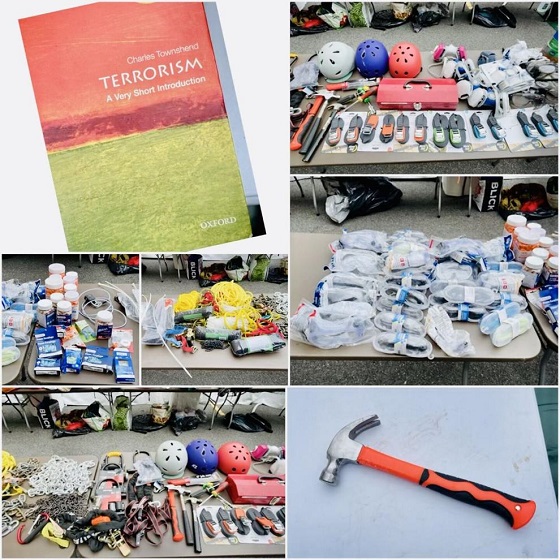
 conflict20 hours ago
conflict20 hours agoNYPD says protesters had weapons, gas masks and ‘Death to America!’ pamphlets
-
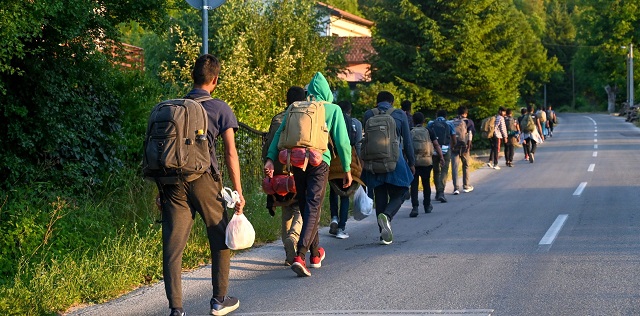
 illegal immigration10 hours ago
illegal immigration10 hours agoBiden’s DOJ Threatens To Sue Another State For Enforcing Immigration Law
-
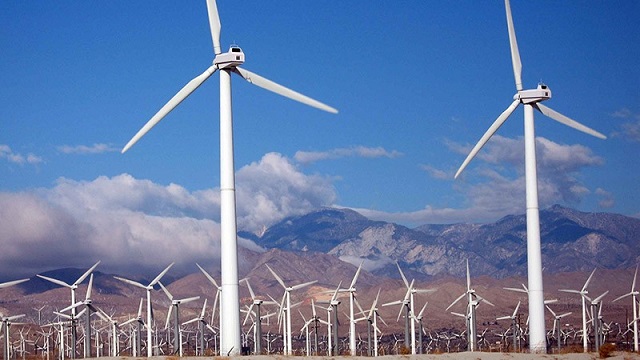
 Economy9 hours ago
Economy9 hours ago‘Gambling With The Grid’: New Data Highlights Achilles’ Heel Of One Of Biden’s Favorite Green Power Sources
-
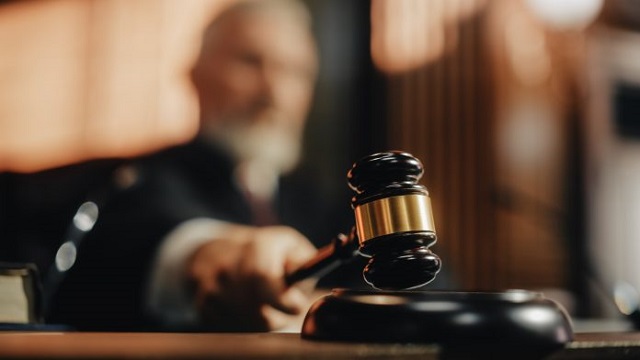
 Opinion2 days ago
Opinion2 days agoClimate Murder? Media Picks Up Novel Legal Theory Suggesting Big Oil Is Homicidal
-
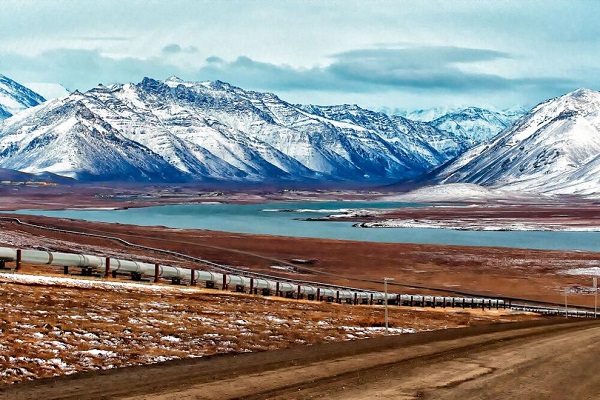
 Energy2 days ago
Energy2 days agoHouses passes bill to protect domestic oil production, protect Iñupiat community
-
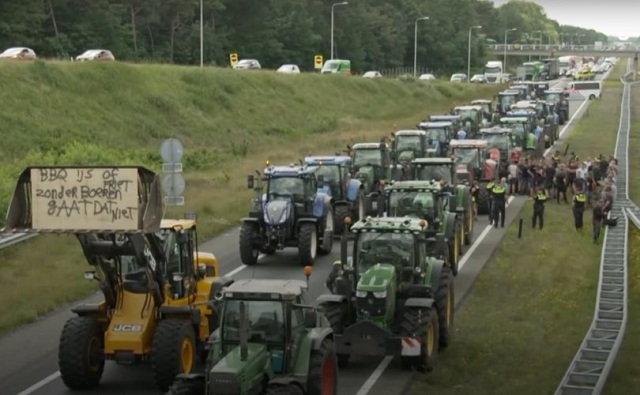
 Energy2 days ago
Energy2 days agoNet Zero’s days are numbered? Why Europeans are souring on the climate agenda
-
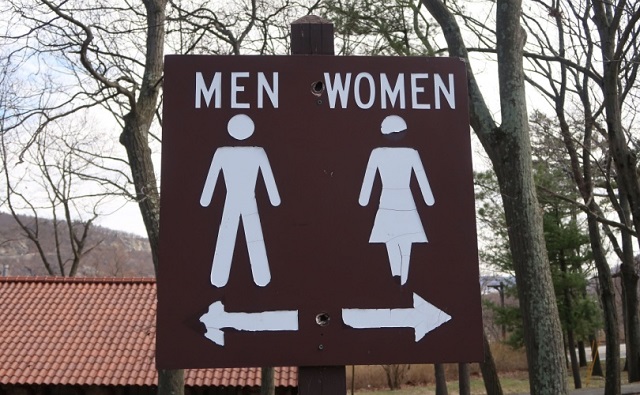
 Opinion1 day ago
Opinion1 day agoQuebec’s ban on gender-neutral bathrooms in schools is good news








